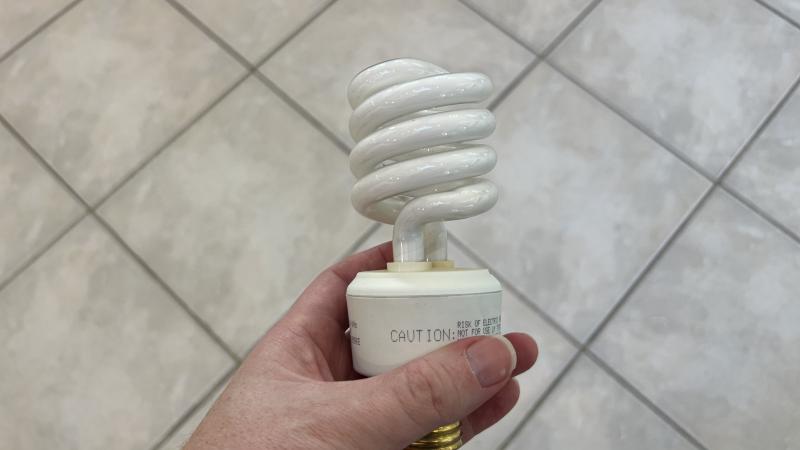Ret. Gen. Robert Spalding on why China is standing in the way of Industry 4.0

The author of the Trump administration’s national security strategy lays out a 5-point-plan to gain advantage over Beijing.
Full transcript:
John Solomon 0:06
Hello, America and welcome to a special Wednesday edition of the John Solomon Reports podcast. That's right, the one from Just the News. Today we're going to do something a little different because we have a rare opportunity to talk to the man who wrote the national security strategy for President Trump at the National Security Council. And we're going to spend the whole half hour talking to no one other than retired Air Force Brigadier General Robert Spalding. This man has a remarkable career. He's a doctor in economics. He's had tremendous experience on the diplomatic front and including solving a crisis with China back in 2016. He wrote the one of the most important books ever written on U.S. - China relationships, and how China has used our desire for cheap products and capital to take advantage of America in gain a leg up in the battle for economic and national security supremacy in the world. So General Robert Spalding is going to join us we're going to take a quick commercial break when we come back, it's a conversation you won't want to miss if you're concerned about China, if you're concerned about Russia, if you're concerned about the Middle East, we cover it all with one of the great strategic thinkers and all of the national security policy world. So we'll be back in a second with the interview with General Robert Spalding.
John Solomon 1:36
Okay, folks, welcome back from the commercial break. And as promised, I have a very special guest today General Robert S. Spalding, retired Air Force General, a very distinguished career including the author of the highly praised national security strategy for the Trump administration. And now the author of a must read book "Stealth War, How China Took Over Ehile America's Elite slept," General Spalding, Thank you so much for joining us today.
Gen. Spalding 2:02
Thank you. Thank you for having me.
John Solomon 2:03
Your book is sensational. And it's interesting, you know, even before the pandemic started, as we were getting started at Just the News, we'd write a story about China and its security threats, and it would instantly rise to the top, which tells us that Americans are increasingly concerned about it. Tell us a little bit about what your book pointed out about our decade of falling asleep?
Gen. Spalding 2:24
Well, you know, I it started for me at the Pentagon when I was advising the Chairman of the Joint Chiefs. And you really started focusing on for him the competition between the US and China. And you know, I just come from a year in New York City at the Council on Foreign Relations where I've met a lot of business professionals. And it was clear that we were facing much more than kind of the standard military competition that we tend to focus on in the Pentagon, it was more of a economic and financial competition that saw our industrial base eroding. That's where it began with the understanding that, you know, we could no longer manufacture the things the Pentagon needed to protect the country. And it just started getting worse from there. You know, as I peel back the layers of the onion to reveal the underlying rot, I kept thinking that eventually I'd get to the end of it, and so far I still haven't.
John Solomon 3:24
It is remarkable. And you know, we saw that supply line threat, the supply chain threat really come to focus with a pandemic, when we realize we didn't have drugs and masks and other things. But really across America we have a supply chain dependency on China, that's probably significantly dangerous if we got into a more hostile posture with them. You have a background in economics as well. So I would love to ask you, when you when you look at where we are now, how do we unravel this? What ideas are there to make America more reliant on itself and less reliant on China?
Gen. Spalding 4:01
Yeah. So I mean, I think there's three things, three policy areas that really need focus in the United States right now. One is monetary policy, the other is industrial policy, and the in the third and final one is trade policy. And they all work together to promote China's mercantilist model. So number one on monetary policy, they have a closed financial system, they have a non convertible currency, they the Bank of China sets the rate that they want to convert, you know, dollars to ... and that allows them to have a steady flow of cash into the country, and they use that cash to provide easy access to credit for Chinese companies. In turn, that money is also used in industrial policy. It's used to get talent. It's used to get innovation, it's used to get technology. So some of it comes back in the form of buying U.S. startups. Some of it is used to power theft of intellectual property from U.S. companies and part of it is just used to develop your new technology in China where you're bringing in professors and experts from the United States to actually develop China's own envisions technology. And then the third in trade policy, this is promoted by an uncompetitive atmosphere in China. In other words, there's non tariff and tariff barriers. There is then subsidization abroad for their companies. So what they do is they take the technology that they've developed and acquired and stolen, and they turn around, they dominate markets globally. So this is how their system works. And if you look at that, on the United States side, our monetary policy really promotes that. So we promote the flow of currency into China. On industrial policy, we don't have an industrial policy, and then a trade policy we promote the advantage that they get in terms of this unbalanced trade. So all three of our, you know, policies, areas of monetary, industrial, and trade are essentially architected so that they get complete advantage of our entire economic system. And this is why we have such a hard time.
John Solomon 6:17
It is remarkablewhen you see the strategy that they have, because they're very patient, the Chinese have a very patient long term strategy to supplant the United States as an economic and military superpower. And we, of course, in America have lacked sort of... until President Trump came in, a sort of national security and economic security policy that was coherent. And the Chinese really made tremendous gains by all the reading I've done in the decade, the last decade. Part of that goes to the fact that there are people that were in the national security establishment, I think, Vice President Biden among them, who don't see China as a threat, who don't think that it's a either a military economic long term supremacy threat to America. Did that color our policy for too long a period of time?
Gen. Spalding 7:06
Oh, it's Yes. It's not just the Obama administration. It's also both Bush administration [unintelligible] administration. I mean, really going back to the Nixon administration and misunderstanding of the Chinese Communist Party. And so yes, a lot of political elites on both the right and the left, essentially, were co-opted by the Chinese Communist Party. And so we fed into this idea that openness, globalization, the internet would lead to the promotion of our economic system, and democracy globally. In fact, what's happened is trying to just use what I told you those three policy areas to essentially re-engineer the global economy, so it benefits them, you know, it's a zero sum game for them. And so this is the challenge that we face as a nation. You know, the last time we as a country did grand strategy was during the Cold War. Essentially, Eisenhower pulled in a number of experts into the White House to do a project called Project Solarium. And this was designed to understand, you know, not only the environment that we're in, the Soviet Union as an adversary, but also come up with a strategy that can be long term. And it was comprehensive and include economics, included finance, included trade, and it included the military. Today what we have, particularly since in the Cold War, when we think of strategy in the United States, we purely think of the military. And that is not the way to make comprehensive national grand strategy that actually sees the promotion of the economic power and might of the United States, of science and technological power of the United States. And then the the promotion of democratic principles abroad, that really lead to, you know, providing a buffer for our society. So this is... we just basically lost our way after the end of the Cold War. No administration since, you know, has really thought of the world and where it's going, our place in it, and how we promote and preserve our republic.
John Solomon 9:10
Now, you did a lot of that thinking at the beginning of the Trump administration, when you put the NSS together, describe what culture when, as you're putting together this national security strategy, what culture did you find within the security apparatus? Were people resistant, open to the idea of looking at the world in a different way and in trying to identify threats that we may have overlooked in past administrations?
Gen. Spalding 9:33
Well, when we began this discussion about the national security strategy and what we needed, the benefit that I had to go into that situation was that I have spent the last three years intensely focused on grand strategy, how we turn this around, and so it was led to a series of discussions and a series of informal seminars that I called winning without war. And it was really about talking about how the world had changed with globalization, the internet, how nation states were using political warfare, ideological warfare, psychological warfare, the internet... all of these different tools to undermine the international order and to undermine America's strength within it. And so once people began to see, you know, how these things were working together to erode the competitiveness of the United States, it was really easy to kind of get them on board. And to get them thinking in a different sort of way, you know, it's no longer about, you know, you just have ships and planes and tanks, you know, and all of this military hardware, it's really about thinking about our place in the world, and how we use the inherent strengths of an open society that's very innovative, and has 40% of the investable capital of the world. It's really drive, you know, our national strength. And so that's how the national security strategy really came together. And it was really over the course of about two, three months in the summer of 2017, where it really solidified.
John Solomon 11:05
Really fascinating. And you know, I remember back to when we were in the campaign and of course, a lot of people were mocking President Trump's concerns about China calling and xenophobic and overblown. But over the last four years, as we've seen, everything from the criminal cases involved, where the you see China, infiltrating our research universities and having secret relationships that don't get disclosed, then we see the pandemic. Do you think the American public has become more aware of the of the impending threat that China poses? And how do we rebuff the political attacks that are designed to scare people away from thinking that way?
Gen. Spalding 11:46
Well, you know, so I led a delegation to Taiwan earlier this year and to observe the elections there. And I had been there a year earlier and and talk to the President about this, you know, influence It's coming from the Chinese Communist Party. So it was apparent this time that they had developed some civil society institutions that were focused on, you know, letting the population know that they were that they were, you know, in their social media platforms, they were coming, coming under attack in their legacy media media platforms, they were coming under the influence of the Chinese Communist Party. So yes, I think the American population is aware because of the Coronavirus. But now it's important that we as a society begin to inoculate ourselves against this by becoming more aware that nation states outside our borders are seeking to influence our population away from democratic principles, away from free trade, and more into an authoritarian system that really, you know, controls them. So instead of the government being responsible to the people, the people are responsible to the government. This is the kind of system that the Chinese Communist Party, the Russians and the Iranians, the North Koreans, the Venezuelans, the Cubans want to promote. And because of the economic might of the Chinese Communist Party, they're able to actually push this everywhere
John Solomon 13:12
It is remarkable. Now, if you're sitting in the National Security Council today and and the President comes to you and says, what are five things we can do right now to begin to break this trendline of China gaining advantage over us? Where would you start? What are the five most tangible things we could do in the next two years to disrupt this pattern of China getting the upper hand with us?
Gen. Spalding 13:36
So first of all, I would build a nationwide secure industrial internet for the United States. That's really about protecting America's information, its data, which is its most precious resource, and allowing for the rise of what's called industry 4.0. So advanced manufacturing, logistics, transportation, you know, self driving cars. All of these are waiting for this industrial, 5g, secure, encrypted internet that is not currently being built. Number two, make tariffs permanent, make them permanent, vis a vis, China and anybody, any nation that works with China. Number three, stop investing our retirement funds in Chinese companies, Chinese stocks and Chinese bonds. Number four, stop allowing U.S. corporations to invest in manufacturing, trying to actually bring that back. And number five, take you know, a portion of the defense budget and start investing in science and technology research, STEM education, you know, influencing the movement of manufacturing and infrastructure. So I think if we do those five things, you really have a recipe of rebuilding the economic and science and technological dominance of the United States.
John Solomon 14:53
Industry 4.0 sounds so exciting and yet there's been no real movement to create that sort of secure internet. And I know a lot of people I've talked to, Michael Pillsbury, Newt Gingrich, lots of people have been talking about that being a blind spot in Silicon Valley and even in the United States policy makers' vantage points. How do we get that on the radar? Is there a way to get that on the radar so that it becomes a reality someday?
Gen. Spalding 15:20
Well, what I'm trying to promote is this idea of a national autonomy corridor. This was in the study that I did on 5g at the White House. It's really about building an industrial internet across the United States. You know, from east coast to west coast, and then maybe three corridors, from north to south that really spurs the production of 5g equipment that gets the per unit cost down, because we're in production flow. Once we're in production flow, it makes it really easy and inexpensive to deploy nationwide. Now, the telecom the you know, the AT&Ts and Verizon is the world. Aren't building this industrial internet, they're building. You know, if there are installing 5g, it's really only about Facebook and Netflix. It's not about, you know, bringing you the manufacturing of the future. So it's really a different sort of a network that needs to be built.
John Solomon 16:16
Now the opportunity for America I mean, investors sometimes get scared when they hear these autonomy questions because they like cheap labor in China, they like trade with China, they like access to the Chinese market, but the strategy you lay out actually has a tremendous upside to the manufacturing base and jobs in America. Right. This is kind of pro American economic opportunity, if executed properly.
Gen. Spalding 16:42
Absolutely. And it's really not that difficult. When you think about it. You know, there's this narrative that the United States is no has lost a lead and telecommunications technology. What I found when I was at the White House, is that we still have the lead is just not In the telecom industry, it's actually moved to the defense industry. So the defense primes get a lot of money from the government to do research and develop with regard to telecommunications and computing except that technology gets put in either on the shelf after it's been proven, or it gets deployed in you know, one off weapon systems in in, you know, advanced, you know, aircraft for instance, like the F-35. Or in the Navy... These aren't being brought to market like they were during the Cold War. So it's really about looking for that technological competitiveness in a different place. And what you'll find is, we have more advanced technology than Huawei. It's just not in AT&T, you're going to find it in a Raytheon or Lockheed Martin, you're not going to find it in the commercial sector.
John Solomon 17:56
Fascinating. Yeah, you're right because it when you read, you don't hear about those advances happening at the Defense Department at all. I could talk to you about China all day because it's such a fascinating it is the global battle of the future for America. But I want to take you to another venue where you have a lot of experience because you ran air and ground operations in both Libya and Iraq. And I want to go for a second. First the Libyan. Yesterday, we had a story on Just the News that the Russian military has dropped some air capacity into Libya. What do you think their intentions are in Libya? And what mistakes have we made in that policy over the last decade?
Gen. Spalding 18:34
Well, I think you know, for them is just really about sowing division and ensuring that they get a you know, that they... whatever side is victorious within Libya becomes allied with Russia. So of course, what they don't want is Libyan oil to be competing with Russian oil. So it's really about keeping and either having access to that living oil or preventing that Libyan oil for instance competing with Russian oil in the market,
John Solomon 19:02
it's it is fascinating. And you know, Joe Biden was one of the few people that were was critical of the rest of the Obama administration's move there. But I think as people look back at his concerns, as he's articulated them, he and others, you look at what the destabilization into 2011... a lot of those fears have come to pass. Iraq's another place that I know President Trump would love to get our troops home. And there's a lot of pressure to bring them home, particularly with the new prime minister, who seems to have a good start to building a coalition there. I talk a little bit about what America should do with its military presence in Iraq, given all the investment we've made there over two decades.
Gen. Spalding 19:44
Yeah, you know, I think, you know, in terms of our military presence in the Middle East, I think what we should be doing is trying to minimize the amount of resources that we're expanding in that area. You know, we can help both the Saudis and Israelis help counterbalance what the Iranians are doing within Iraq you know, to the extent that we are involved, we ought to be much more involved in terms in economically in terms of working with them to bring that oil to market. And I think more importantly, where we can be focused as a nation. When you're thinking about energy production is here in the United States, we've generated this tremendous capability and capacity here in the United States for generating energy. And then we've allowed the Russians and Saudis working together during the coronavirus outbreak to really destroy the market here for the U.S. oil. And so we're gonna have to, you know, protect that and rebuild that. Because ultimately, if we can generate our own energy, then we're not going to have to be as involved in in the Middle East. And that really becomes then about balancing between Saudi Arabia, Israel and Iran, because I think if we can do that, that gives us time to essentially have a regime change eventually in Iran that allows for this less confrontational nature.
John Solomon 21:04
And do you feel that regime change is likely to occur? And what's the timetable in Iran? I mean, I know coronavirus, hit them hard. The economic sanctions have really crippled them. Are we years away, decades away from a regime change there?
Gen. Spalding 21:18
Well, you know, because of their partnership with the Chinese and the Russians, it really makes it difficult for us to predict that, you know, what the Chinese have Communist Party's become so adept at is adopting the technologies and business models of Silicon Valley, to promote their authoritarian, you know, ... based totalitarian system. And so they're deploying that, you know, in places like Iran and Russia, they're sharing that technology in that know how, and so it is very difficult. And, you know, one of the things that prevents us from actually breaking through that is that we essentially in 1999, got rid of the U.S. Information Agency, which is really an organization designed to promote public diplomacy, you know, American principles and American values. And so Radio Free Asia radio, radio through Europe, Voice of America have all been infiltrated and slowly been, you know, not promoting American principles abroad. In fact, when I was in the White House, and we are having riots in Iran, you know, our, you know, Voice of America and Radio Free Asia, we're essentially retweeting the Quran regimes talking points. So, it's gotten so bad, and they're conflicted because they think that, you know, meeting journalistic standards means they have to give, you know, equal weight to what these totalitarian regimes say, that's not their job. They're not CNN, they're essentially an arm of U.S. public diplomacy, and they're supposed to be presenting the U.S. side, not the side of, you know, essentially a murderous regime.
John Solomon 22:58
Now, if we've seen it with China, recently where they were taking the communist China's talking points on coronavirus and other things. We think one of their tweets got deleted afterwards because it was so embarrassing. But that's a really great point that we've lost our communication capabilities into these hostile regions because of the change that has occurred at those institutions. Back to Iraq, because I'm curious, do you think the President will achieve pulling our troops out of Iraq this year? Do you think he'll get it done before the election?
Gen. Spalding 23:27
You know, I like to see that he that he would, you know, the problem we have in DC is still there, you know, not at the National Security Council, I can tell you because I know a lot of people that work there, but certainly outside of that you still have the sense that national security is really about troops on the ground. And there's not an understanding kind of more of what I talked about the grand strategy now how do we use you know, our newfound energy independence? How do we use you know, manufacturing dominance and science and technology dominance to really drive the agenda and promote growth not just in the United States, but also in other democratic countries. And how do we sideline those nations that are more authoritarian and make it more difficult for them to be connected to that system and take advantage of it. So these are the things that you have to really have a more of a broad view of the world and understand business, understand industry, understand, you know, science and technology and really bring a kind of a balanced approach to how we use all the benefits of living in a free society to really promote our principles and values abroad because it really allows us to have more of a buffer away. You know, we used to think of this idea of two big oceans, two friendly borders insulating the United States from from conflict or confrontation. And of course, we've seen with globalization, the internet, the ability for it to come right into your own living rooms, either through social media influence, or like we saw with the attacks in 911, you know, using the globalized world to really, you know, weaponize it. And so these are the things that we have to think differently about how national security works, and not be so focused on going and starting these conflicts abroad because they don't really contribute to our ultimate national power.
John Solomon 25:24
The there's a lot of excitement when I talk to people in the State Department, Defense Department in mind House about Mustafa Kadima, the new prime minister, he had a good relationship with Americans as the intelligence chief, what are we going to do? There's going to be bilateral talks in June, what do we do to prop him up make sure that Iran doesn't meddle, even as we start the process of getting our last troops out of the out of the region?
Gen. Spalding 25:49
Well, I mean, that's gonna be very difficult because, you know, they're right there. And so it's really about putting pressure on the Iranian regime via other ways. Remember, I talked about, you know, public diplomacy? You know, we haven't really been in a lot of, you know, news to let the let the population know that there are other things out there. And so it's really about using, you know, our means to deliver, you know, the truth into Iran might might help, you know, have that regime be more focused on their own people than they are about, you know, outside their borders.
John Solomon 26:26
That's a great point. Well, General, I could talk to you all day, your strategic thinking is so refreshing in an era where we live in Twitter soundbites. But, folks, if you haven't gotten this book, you must get it. It's a must read "Stealth War, How China Took Over While America's Elite Slept." It is the ultimate bible of understanding how America got into the position it did with China and how we can get ourselves out of it. General I can't thank you for spending so much time sharing your thoughts today. It was a lot of fun.
Gen. Spalding 26:53
Thank you.
John Solomon 26:54
Alright, so you have a good day.













